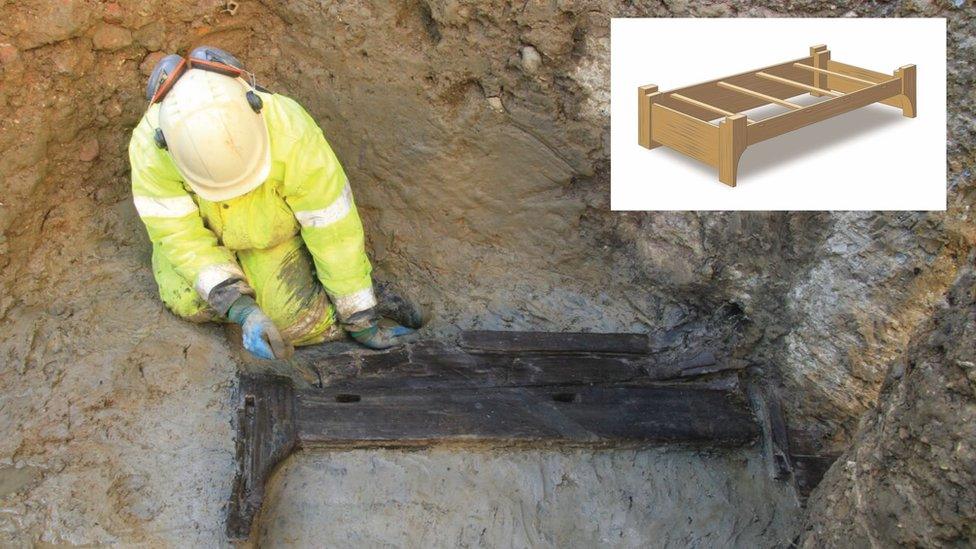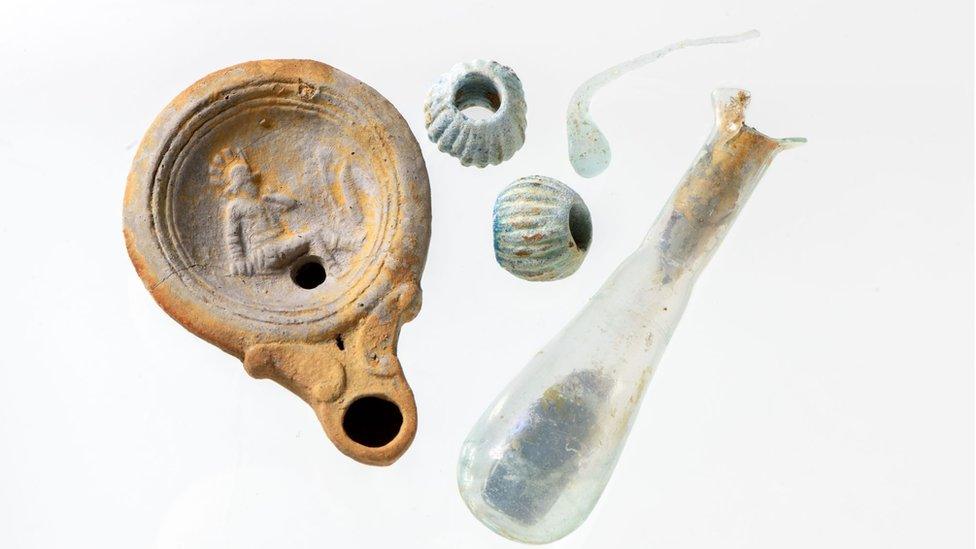Holborn excavation: Flatpack bed found in Roman dig
- Published

An excavation in central London has revealed what experts think is a Roman flatpack bed for use in the afterlife.
The funerary bed was found near Holborn Viaduct by a Museum of London Archaeology (MOLA) team.
The resting place, where five oak coffins were also uncovered, is now six metres (20ft) below street level.
MOLA said the finds were "incredibly rare" as only three well-preserved Roman timber coffins had previously been uncovered in the capital.
The 2,000-year-old furniture has been kept in a good condition by the damp mud of the River Fleet, MOLA said.

Personal objects including beads, a glass vial and a decorated lamp were also unearthed
Depictions of beds being used as part of funerals are common across the Roman world but the funerary bed found at this site is the first complete example ever discovered in Britain.
Made from high-quality oak, the bed has carved feet, and joints fixed with small wooden pegs.
It was dismantled before being placed within the grave but may have been used to carry the individual to the burial and was likely to have been intended as a grave good for use in the afterlife, MOLA said.
Personal objects including beads, a glass vial, and a decorated lamp were also found.